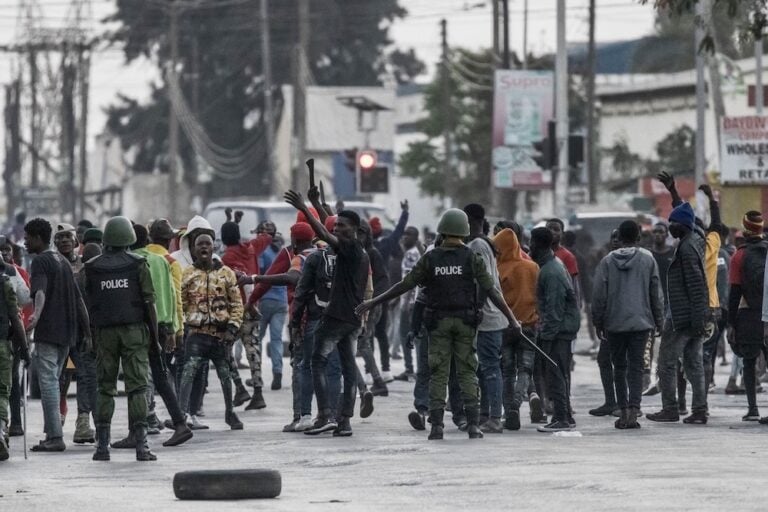(MISA/IFEX) – On 27 May 1998, the administrator of the Lusaka High Court, Philip Musonda, announced that only one journalist each from a selected number of local and international news organisations would be allowed to cover the treason trial stemming from the October 1997 attempted coup. The trial began on 1 June. Musonda said the […]
(MISA/IFEX) – On 27 May 1998, the administrator of the Lusaka High Court,
Philip Musonda, announced that only one journalist each from a selected
number of local and international news organisations would be allowed to
cover the treason
trial stemming from the October 1997 attempted coup. The trial began on 1
June. Musonda said the need for the restrictions on access to the trial was
the severe lack of space in the court room. He said in a letter circulated
to the media that, in addition, only one relative each of the treason
accused would be allowed into the court room, also because of lack of space.
Among the local news organizations given priority were the state-owned
“Zambia
Daily Mail”, “Times of Zambia”, Zambia National Broadcasting Corporation,
Zambia News Agency and Zambia Information Services. Other local media
identified were the privately-owned “Post”, Radio Phoenix and the
church-owned “National Mirror” and Radio Christian Voice.
Among the international news organisations given priority were the German
News Agency (DPA), Chinese News Agency (Xinhua), Voice of America, Reuters,
Cable News Network (CNN) and the Pan-African News Agency (PANA).
A number of local newspaper organisations and freelance journalists
representing Agence France Press (AFP), Channel Africa, the “Monitor”
newspaper and others who were omitted from the list protested to Musonda on
29 May and were assured of being included. Musonda told ZIMA through his
secretary on 29 May that a new list had been put together which included
those journalists who had been omitted and had complained.
Katongo Chisupa of AFP and Anthony Mukwita of the “Monitor” confirmed to
ZIMA on 29 May that their organisations had finally been included to cover
the trial and given “official court accreditation”. Mukwita told ZIMA on 3
June
that police were very strict about which journalists were allowed into the
courtroom. They were only allowing journalists with “official court
accreditation” from Musonda in addition to having general press
accreditation. “The
rule was being applied strictly,” he said.
The “Post” reported on 1 June that the rules imposed by Musonda would change
as the trial progressed. Quoting Musonda, the report said that the rules
were not “hard and fast”. Musonda said the rules would be relaxed “as we go
on”.


